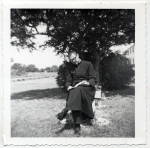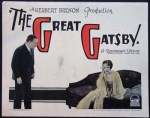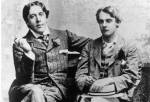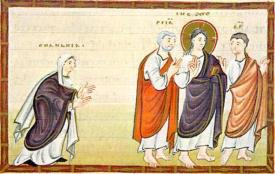A (Very) Short Story
The best day of my life so far was the day I auditioned for the New York Philharmonic. I was washing my car in the front yard when the call came. My wife ran out of the house with the telephone.
“It’s from New York,” she said. “I think it’s the New York Philharmonic.”
I took the phone and cleared my throat
“Hello?” said the man’s voice in the phone. “Hello, Joseph? Joseph, baby, this is Leonard Bernstein!”
I let the hose drop. My wife shut the water off and leaned her ear over to listen.
“As you know, I am the principal conductor of the New York Philharmonic, and I’m looking for promising new talent. How would you like to be as famous as Van Cliburn, Pablo Casals, and Issac Stern?”
I smiled and said, sure, I would like that.
“Percussion is your instrument, right?”
I said that, yes, it was. And then I explained that although I had never received formal training for what I do, people at the parties where I had performed had been quite impressed with my abilities — especially the stuff with the wooden spoons and the empty yogurt containers.
“Oh yes, we’ve heard about the yogurt containers here in New York. Some of our percussion guys tried them out in the adagio movement of the Shostakovitch Third, but the sound was not good. In fact, Joseph, baby, the sound was bad.”
They probably were using the wrong technique, I said. A lot of the sound relates right back to the wrist action.
“Say, would you be willing to audition for me on the phone right now?” Leonard Bernstein asked. “I mean, if you’re not too busy.”
I told him that, I was not too busy, but I would have to get some things together. I would have to find my sticks, which I was sure were in the kitchen drawer behind the silverware, and my plastic measuring cups, which were in a bag on the porch. I would also have to round up my billiard ball and the crochet hoop with the waxed paper.
“I’ll hold,” he said. “And, tell you what, I’ll get my percussion guys to come to the phone and listen in.”
When I returned to the phone about ten minutes later, Leonard Bernstein was waiting, and he introduced members of the percussion section of the New York Philharmonic. My wife held the phone out while I assembled my stuff on the hood of the car. Then I went through my entire routine, whistling “Blue Skies” as I thumped, knocked, rattled, and scratched. I finished with a resounding slap to the hot car hood with a spatula.
Loud applause and whistles and bravos came from the phone. My wife and I just stood there and listened. She gave me a shy smile.
“Magnificent!” said Leonard Bernstein. “I mean, what can I say? Joseph, baby, so long – I’ll be in touch.”
That was the best day of my life so far.








